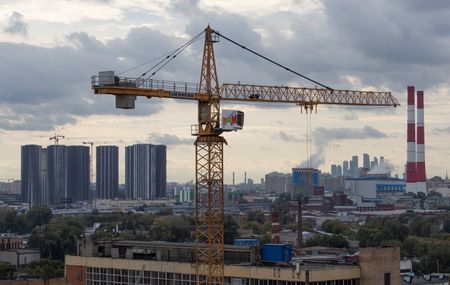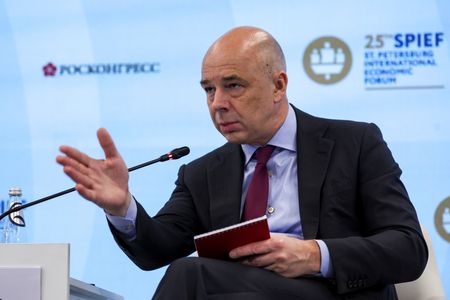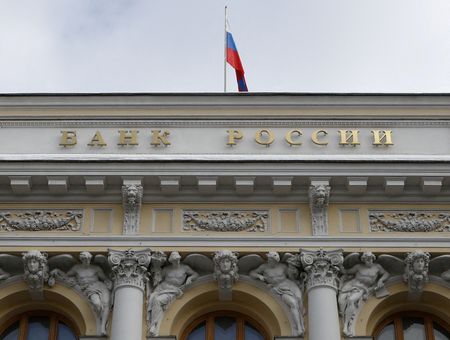By Darya Korsunskaya and Alexander Marrow
MOSCOW (Reuters) -Russia’s finance ministry is sticking with plans to post a budget deficit of no more than 2% of gross domestic product (GDP) in 2023, despite towering spending and slumping energy revenues contributing to a huge shortfall in January.
Russia recorded a budget deficit of almost $25 billion in January, in part due to falling oil and gas revenues, the lifeblood of Russia’s economy. That led analysts to forecast a budget deficit as wide as 5.5 trillion roubles ($73.2 billion), equivalent to 3.8% of GDP, unless prices for Russian oil recover.
“The main thing is to look at the budget balance, which will be formed at the end of the year,” Finance Minister Anton Siluanov said in an interview broadcast on Rossiya 24 on Friday. “And for the end of the year, our plan is 2% of GDP, no one has cancelled it, and these parameters will be maintained.”
It was a clear signal that Moscow intends to keep fiscal spending in check. The central bank, which has warned that a large deficit would feed into inflation and thereby force it to raise interest rates, last week said it was assuming the finance ministry would keep the deficit at planned levels.
A deficit larger than planned would require a mix of higher foreign currency sales, lower spending, more borrowing or tax rises.
BUSINESS TAX
Russia is already selling 8.9 billion roubles ($124.5 million) worth of foreign currency per day to cover the deficit and the government plans to levy a one-off “voluntary” tax on big business.
Siluanov said he expected that to fetch around 300 billion roubles. Active discussions were ongoing with the business community about how this “support” would be provided, he added.
“Special amendments to tax legislation will be prepared,” Siluanov said, stating that the government would collect funds from business based on the “dynamics” of their financial results over the last few years. He did not say which industries would be affected, but ruled out small businesses and the oil and gas sector.
“The details are now being agreed with our entrepreneurs and I am sure that we will soon find the optimal instrument for business to participate in financing, in essence, state programmes,” Siluanov said.
(Reporting by Darya Korsunskaya and Alexander Marrow; Additional reporting by Marina Bobrova; Editing by Muralikumar Anantharaman, Jacqueline Wong and Emelia Sithole-Matarise)



